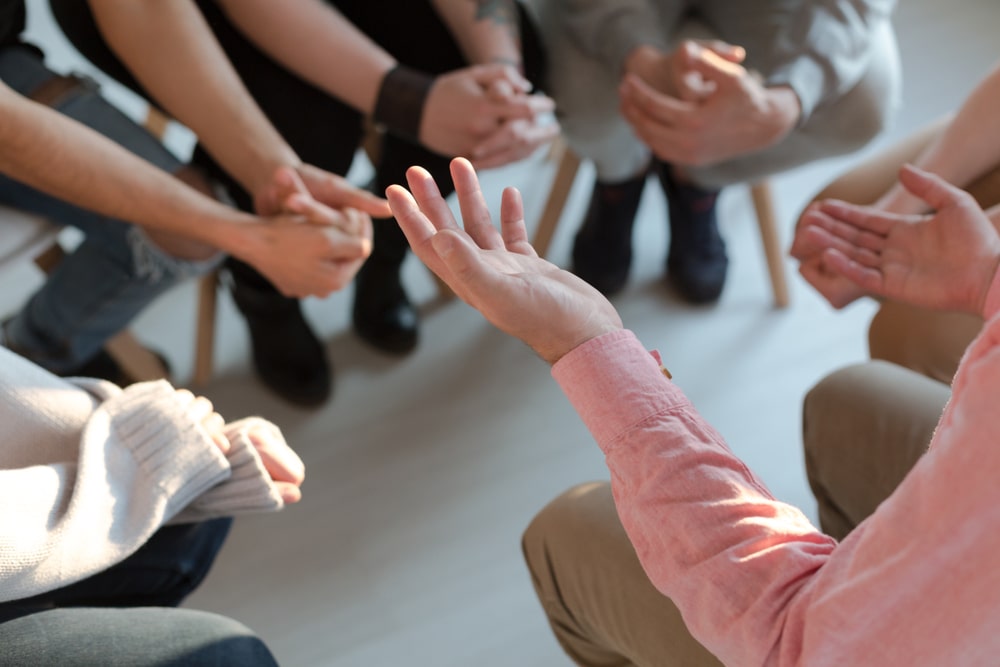Expressive therapy, also known as expressive arts therapy, art therapy, creative arts therapy, or experiential therapy, is an integrative therapeutic approach that draws on expressive tools and activities (e.g., role-playing or acting, props, arts and crafts, music, guided imagery, etc.) to enhance development, realize therapeutic goals, and promote personal growth. Positive Psychology explains expressive therapy as a “multimodal holistic health intervention that mobilizes creative expression in the service of healing both mind and body.” Experiential therapy can be used to treat a variety of issues. It can provide positive health outcomes for teens struggling with various mental health disorders, issues, and/ or symptoms, such as:
- Destructive anger.
- Anxiety.
- Communication issues.
- Compulsive behavior.
- Depression.
- Family conflict.
- Grief.
- Physical or psychological trauma.
- Eating disorders.
- Phobias.
- Self-harm.
- Substance use disorder.
- Behavioral disorders.
Expressive arts therapies offer a space for teens to learn skills, without overt teaching or instruction. Through these therapeutic interventions teenagers engage in processing feelings, exploring identity, and problem solving through the expressive arts, while simultaneously learning self-regulation, emotional naming, self-awareness, and coping skills.
Benefits
Experiential therapy can help a teen gain awareness and insight into the nature of their experiences, feelings, inner thoughts, interactions, and needs. Verywell Mind illuminates several benefits of expressive therapy for teenage mental health, some of which include:
- Handle fears, obstacles, and stressors more effectively.
- Appreciate the value of grit and perseverance.
- Build self-confidence.
- Enhance communication and problem-solving skills.
- Focus on the present.
- Internalize the notion that personal choices impact others.
- Cultivate a deeper understanding of personal conflicts and relationships.
- Manage feelings of anxiety, depression, or hopelessness.
- Make better choices that are aligned with one’s needs and values.
- Take personal responsibility in and for their life.
- Discover personal desires, emotions, motivations, and needs.
Expressive therapy is founded on the belief that engaging in creativity is not only healing, but provides avenues for processing feelings, solving problems, increasing insight, coping with emotions and thoughts, gaining self-awareness, and connecting with others directly or indirectly. These therapies combine psychology and the creative process to promote emotional growth and healing which can directly enhance a teen’s mental health, emotional well-being, and overall quality of life.
For Information and Support
Every family in need of mental health treatment must select a program that will best suit the needs of their family. When one member of a family struggles, it impacts everyone in the family unit. To maximize the benefits of treatment we work closely with the entire family to ensure that everyone is receiving the support they need through these difficult times.
Seeking help is never easy, but you are not alone! If you or someone you know needs mental health treatment, we strongly encourage you to reach out for help as quickly as possible. It is not uncommon for many mental health difficulties to impact a person’s life, long term. Pursuing support at the beginning of one’s journey can put the individual in the best position to learn how to manage themselves in a healthy way so they can go on to live happy and fulfilling lives.
OUR KNOWLEDGEABLE ADMISSIONS TEAM CAN BE REACHED 24/7 AT INFO@PACIFICRTC.COM OR CALL: 800-531-5769
We are available to answer any questions you may have regarding mental health treatment and our residential program, anytime. Contact us today using the form to the right.






